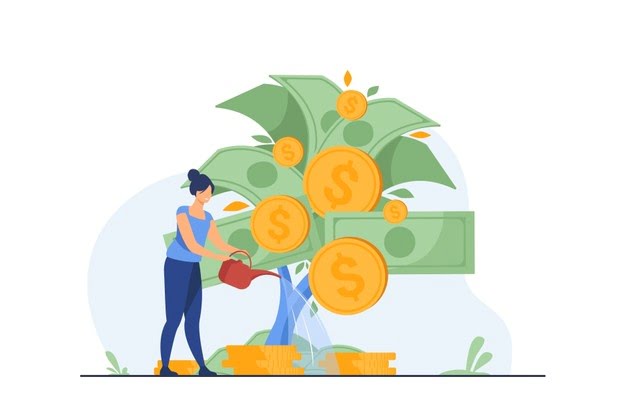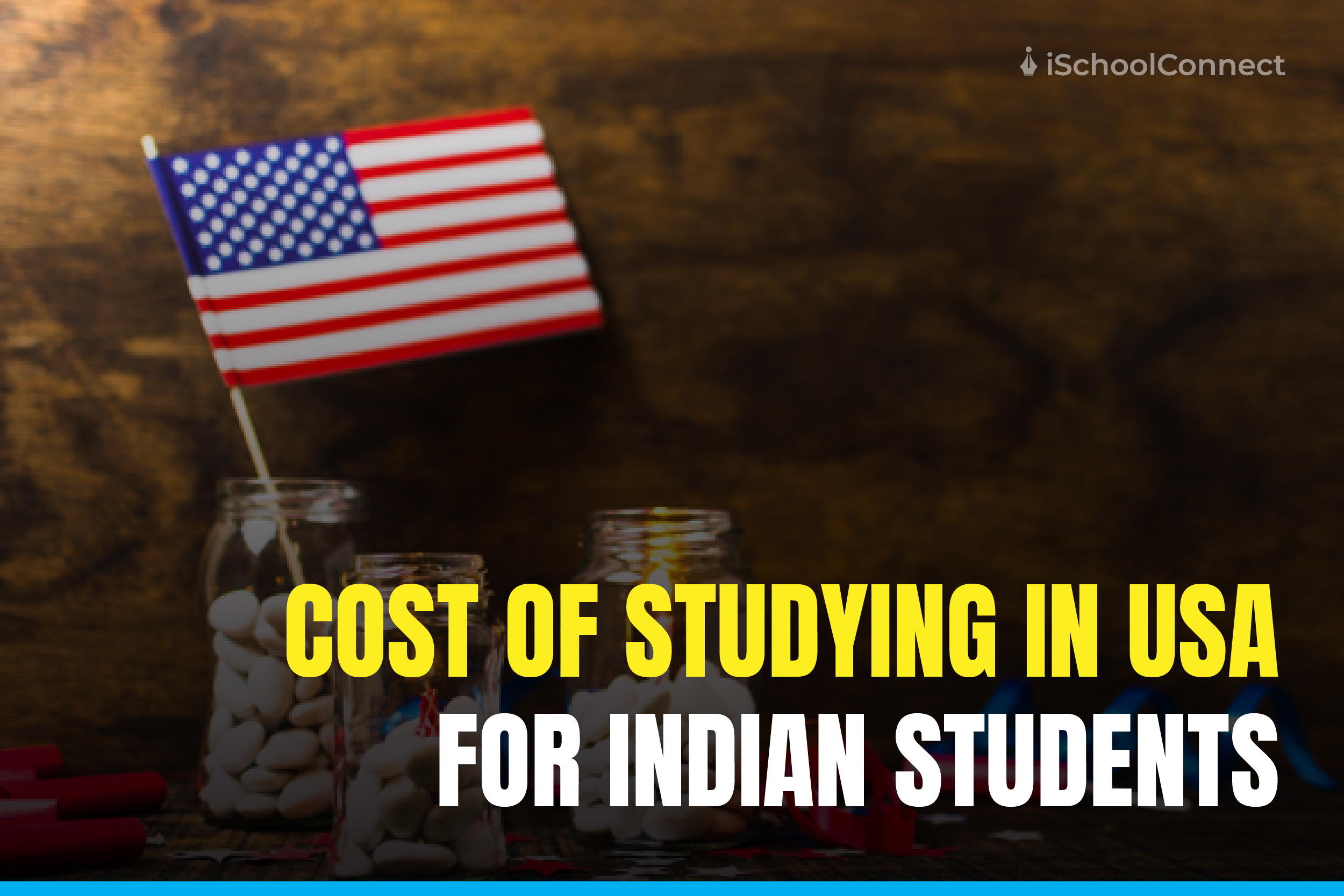Table of Contents
- #1 You will never be able to pay off your loan
- #2 You should borrow as much as you can
- #3 You should always go for a student loan with low-interest rates
- #4 You will not get a loan if you do not have collateral or a good academic record
- #5 It is wiser to use personal savings rather than taking a student loan
- #6 There is no need to worry about the repayment of loans till you graduate
- #7 Income-driven loan repayment plans lower your debt repayment costs
- #8 The loan interest rates may keep fluctuating
- #9 You need to completely follow the advice of a loan service provider
- Key Takeaways
- FAQS
Financing higher education is a cause of concern for many students looking to study at premier institutes in their country or abroad. Student loans, however, help facilitate the higher education dreams of a large number of students. But there seems to be an apprehension regarding student loans. There isn’t enough information to clarify these student loan myths. They can cloud your judgment while you’re trying to figure out how to most effectively fund your education.
Listed below are 9 common student loan myths that we are going to debunk. Take a look!
#1 You will never be able to pay off your loan
This is one of the major student loan myths that demotivates a lot of students from applying for a loan. Yes, student loans are of considerable value and it might seem like a lot of money to pay off. But there is a diverse range of options to pay off your student debt after you graduate.
Once your education is complete, you will have the choice of shifting your repayment method to an income-driven plan or refinance your loan-
- An income-driven plan restructures your loan repayment based on your current family income so you don’t have to worry about repayment within a strict period.
- A loan refinancing is taking a new loan at a new interest rate to pay off your student loan. Refinancing can help you get better rates of interest than the student loan interest rates.
Do not shy away from a student loan just because of the fear of repayment. If you get a higher quality of education, you automatically achieve a better position to repay your loans.
Pro tip: Use an online student loan EMI calculator to plan your loan repayment in an efficient manner.
#2 You should borrow as much as you can
A mistake often made by borrowers is to take on huge amounts of student loans just because it is possible to do so. Taking a student education loan of a huge amount can feel like a safety net during the course of your college education. However, it might turn into an insurmountable amount once you complete your education.
The wise decision before you apply for a student loan is to make an estimate of exactly what the total expenses of your college course are. If you are applying for student loans for studying abroad you should also factor in the costs of accommodation and other living expenses. Take a loan based on the amount you will need so that you can make the loan repayment easier for yourself.

You can also plan your finances by taking a certain amount of student loans and paying for the rest with your savings. Make use of a student loan calculator so that you do not end up borrowing an amount that will be difficult to pay off.
Pro tip: Plan your loan based on the career options for your future as well.
#3 You should always go for a student loan with low-interest rates
Lower interest rates on loans are desirable. However, one of the major student loan myths is that lower interest rates are always better for you. While low-interest rates might make it seem like your repayment costs will not surmount to a larger sum, it is also very important to also take a look at the period of loan repayment.
If the loan repayment term with a low-interest rate makes you repay the full amount while you are still completing your college, then it can make it more difficult for you to pay back the money in such a short time.
Student loan interest rates are an important factor in your loan decision, but you should be wary of taking a student loan based on only this factor.
#4 You will not get a loan if you do not have collateral or a good academic record
It is a myth that your student loan eligibility is based only on your academic record and if you have collateral for the loan. Factors like collateral and strong academic record increase the chances of your student loan application being accepted. However, you should not be discouraged if you do not have a very strong academic record or loan collateral.
A good credit score can help you get a student loan, too! There are several lenders in the market who will provide you with a student education loan if you apply with an earning co-applicant who has a good credit score.
Many lenders also look at the future potential of a student as a factor when considering loan applications. They are willing to offer student loans without collateral. If you are a candidate who has the potential to repay the loans with your earnings after graduation, then you’ve got nothing to worry about.
#5 It is wiser to use personal savings rather than taking a student loan
Student loans are generally of huge value and this usually deters people from wanting to take on such a huge amount of debt. Self-financing your education may seem like the best option if you have the resources to do it, but most often, students do not.

Besides, spending such a large chunk of your savings on education is not a very wise way to use your money. You can rather invest that amount of money into a scheme and earn interest on it. Meanwhile, take a student loan and repay it with the help of the income you make from your investment schemes. This will not only help you save your personal funds and use them in a financially sound manner to fund your education, but also build your credit score for a better future.
#6 There is no need to worry about the repayment of loans till you graduate
If you think that loan repayment only starts after you complete your graduation, then it is one of those student loan myths that need to be busted. A lender might provide you the option of repayment once you get a job and start earning after college. But that doesn’t mean you don’t have to pay anything until after graduation.
While you’re in college, most lenders will charge you simple interest on student loans. This interest is compounded on the completion of the course, which raises the amount of interest that you need to pay with time. So try to start paying your student loan during your college to ease the burden of loan repayment upon the completion of your course.
You can do part-time jobs and on-campus jobs to start earning while in college. You can also take some time to consider different loan repayment methods while you’re in college. This will help you kickstart your loan repayment cycle and finish it off at the earliest.
#7 Income-driven loan repayment plans lower your debt repayment costs
An income-driven loan repayment plan adjusts your monthly loan payment based on the amount of money you earn. While this seems like a good option for student loan repayment, it is probably not the best. An income-driven repayment plan actually increases the amount of student loan interest over time. This decreases the amount of monthly loan repayment but increases the time period for the repayment.
Extending your loan period actually increases the amount of money you need to repay over time. Therefore, opt for an income-driven loan repayment plan only if you are really short on funds and require some relaxation to keep up with your student loan repayment.
#8 The loan interest rates may keep fluctuating
Interest rates do fluctuate over time, but you will not be charged according to them. When you apply for a loan, you agree on a certain rate of interest. And your repayment will follow the agreed-upon interest rate for your loan.
#9 You need to completely follow the advice of a loan service provider
One of the biggest student loan myths is thinking that your loan advisor is the only one who can guide you through choosing the best plan. Loan advisers do provide help during the student loan application process and give valuable suggestions as well. However, it is probably not a good decision to blindly follow their advice, since they might not suggest the best possible options for you.
Take the help of a student loan EMI calculator and plan your finances on your own. A loan service provider will ultimately try to look out for their best interest and may not share information on the best financial plan to you. So make an informed decision on the amount of loan that you need and the best repayment option yourself.
Key Takeaways

- You do not necessarily require student loans for higher education.
- Repaying your student loans is not an impossible task if you plan your finances well.
- Lower student loan interest rates do not compulsorily mean a better plan for you. Take a look at the period of repayment too.
- Start making loan repayment plans while you’re still in college.
- You can get student loans without collateral and an impeccable academic record.
- Use a student loan calculator to accurately plan your finances for repayment of the loan.
- If you are having trouble repaying your loans, you can extend the loan period with the help of an income-driven repayment plan.
FAQS
1. Can I avail myself of a student loan if I am planning to study abroad?
Yes, you can get student loans for studying abroad from leading student loan providers in your country. You should factor in living expenses and tuition fees for your whole course if you are planning to take a loan to study abroad.
2. How can I calculate the amount of monthly payment for my student loan?
Your loan service provider gives you an estimate of the monthly payments for your student loan. You can also use a student loan EMI calculator to know the exact monthly amount for your loan repayment.
3. What is a student loan collateral?
A student loan collateral is a security that is guaranteed against your loan amount. This is a security for your loan provider in the event that you fail to repay the student loan amount within the stipulated time.
4. Can I return some amount of my student loan if I do not require it?
Yes. You can return part of your student loans back to your loan provider if you do not require the money. This also reduces the amount of your debt.






